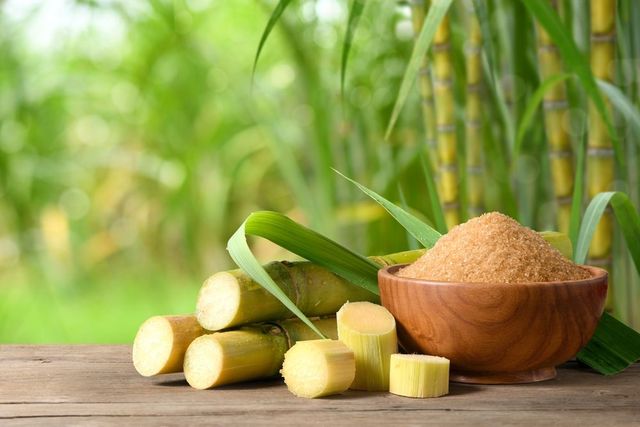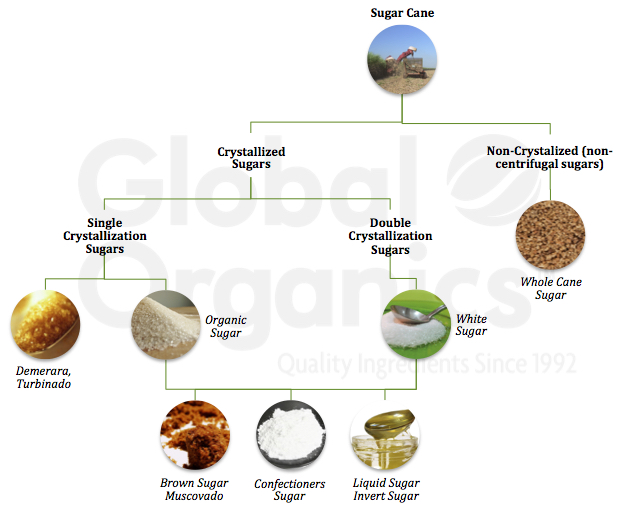Sugar and Cane: Exploring Their Role in Traditional and Modern Cuisine
Sugar and Cane: Exploring Their Role in Traditional and Modern Cuisine
Blog Article
Why Cane Sugar Handling Chemicals Are Vital for Modern Sugar Refining
The duty of walking cane sugar handling chemicals in modern sugar refining can not be overstated, as they are important to enhancing both the efficiency of extraction and the overall top quality of the last item. Representatives such as phosphoric acid and particular flocculants are utilized to remove contaminations, resulting in sugar that not only meets customer assumptions however likewise adheres to industry criteria.
Duty of Processing Chemicals
The efficiency of walking cane sugar handling hinges dramatically on the tactical application of processing chemicals. These chemicals play a critical role in enhancing the efficiency and top quality of sugar removal and refining. From the preliminary stages of juice removal to the last filtration steps, processing chemicals help with different crucial procedures.
In the extraction stage, chemicals such as phosphoric acid and calcium hydroxide are utilized to maximize the explanation process, assisting to get rid of pollutants and suspended solids from the walking cane juice. This not only boosts the yield but additionally guarantees the quality of the end product. In addition, agents like flocculants help in the quick settling of pollutants, thereby streamlining the general procedure.
As the handling advancements, chemicals are made use of in decolorization and condensation stages. Turned on carbon and ion exchange materials offer to remove shade and smell, making certain that the polished sugar fulfills customer quality criteria. Ultimately, the duty of processing chemicals extends beyond functional efficiency; they dramatically impact the sensory characteristics of the final product, contributing to market competition. Therefore, the meticulous choice and application of these chemicals are crucial for achieving optimum results in walking cane sugar processing.
Key Kinds Of Chemicals
Walking stick sugar handling relies upon a variety of key chemicals that help with each stage of production. These chemicals play necessary roles in clearing up, bleaching, and cleansing the sugar extracted from cane.
One primary group of chemicals consists of flocculants, such as polyacrylamide, which help in the clarification procedure by promoting the gathering and settling of contaminations. Additionally, calcium hydroxide is typically employed to counteract acidity and aid in the removal of non-sugar parts.
Whitening representatives, such as activated carbon and sulfur dioxide, are used to decolorize the syrup, causing a more clear end product. These chemicals help get rid of color substances that may impact the sugar's appearance and bankability.
Additionally, phosphoric acid works as a pH regulator throughout the handling stages, making certain ideal conditions for the enzymatic activities associated with sugar removal and filtration.
Various other essential representatives consist of edta (ethylenediaminetetraacetic acid), which chelates metal ions that might militarize undesirable reactions, and salt hydroxide, which aids in pH control throughout the refining procedure. Jointly, these chemicals enhance efficiency and make certain a top notch walking cane sugar item.
Benefits for Sugar High Quality
Usually overlooked, the usage of certain processing chemicals substantially enhances the overall high quality of walking cane sugar. These chemicals play a pivotal duty in refining procedures, guaranteeing that the end product meets stringent sector requirements for purity and preference.

Furthermore, processing chemicals help in accomplishing a consistent granulation and appearance, which are vital review for consumer acceptance. By controlling the condensation procedure, these chemicals make certain that the sugar crystals develop evenly, leading to a more enticing item that liquifies well in different applications.
Moreover, the use of these chemicals can enhance the shelf life of cane sugar by reducing dampness absorption and microbial development. Generally, the tactical application of processing chemicals is important for supplying high-grade walking cane sugar that meets customer assumptions and industry needs.
Ecological Influence Considerations

Moreover, the energy-intensive nature of sugar refining, intensified by chemical usage, commonly results in enhanced carbon exhausts. This adds to environment adjustment and increases concerns relating to the sustainability of existing refining techniques. In addition, the sourcing of these chemicals may include practices that intimidate biodiversity, such as monoculture farming, which minimizes the strength of farming communities.

To alleviate these influences, sugar refiners are progressively discovering sustainable alternatives and embracing ideal practices that minimize chemical usage. Applying strenuous ecological monitoring systems can assist guarantee that the refining procedure aligns with ecological criteria and advertises biodiversity. Inevitably, a well balanced approach that prioritizes both sugar high quality and ecological stewardship is crucial for the long-lasting viability of the sugar industry.
Future Fads in Refining
As the sugar market comes to grips with the environmental difficulties related to traditional refining methods, ingenious techniques are emerging to improve both performance and sustainability. One considerable fad is the fostering of environment-friendly chemistry concepts, which prioritize making use of non-toxic, naturally degradable handling chemicals. This change not just decreases ecological effect but additionally addresses customer demand for cleaner production techniques.
Another appealing advancement is the application of sophisticated filtering innovations, such as membrane layer splitting up and adsorption procedures. These strategies enhance the clarity and high quality of the sugar while reducing the volume of wastewater produced throughout refining. Additionally, the combination of electronic technologies, including IoT and AI, is transforming operational performance by allowing real-time monitoring and predictive maintenance, thus reducing my response resource waste.
Moreover, using spin-offs from sugar why not find out more refining, such as bagasse and molasses, is getting grip. These materials can be exchanged biofuels or value-added items, adding to a circular economy within the sector. Jointly, these fads signify a change towards more sustainable methods that not only improve operational efficiency however also straighten with global sustainability objectives, guaranteeing the future feasibility of sugar refining.
Conclusion
Walking cane sugar handling chemicals are vital in modern-day sugar refining, substantially enhancing the performance and top quality of sugar removal. The critical usage of these chemicals not just boosts the purity and flavor of the final item however additionally makes sure consistent formation and texture. As the market significantly focuses on sustainability, the fostering of environmentally-friendly processing agents is most likely to form future patterns in refining, ultimately leading to higher quality items and expanded life span for consumers.

Ultimately, a well balanced method that prioritizes both sugar high quality and environmental stewardship is necessary for the long-term stability of the sugar industry.
Walking cane sugar handling chemicals are vital in modern-day sugar refining, significantly enhancing the efficiency and top quality of sugar extraction.
Report this page